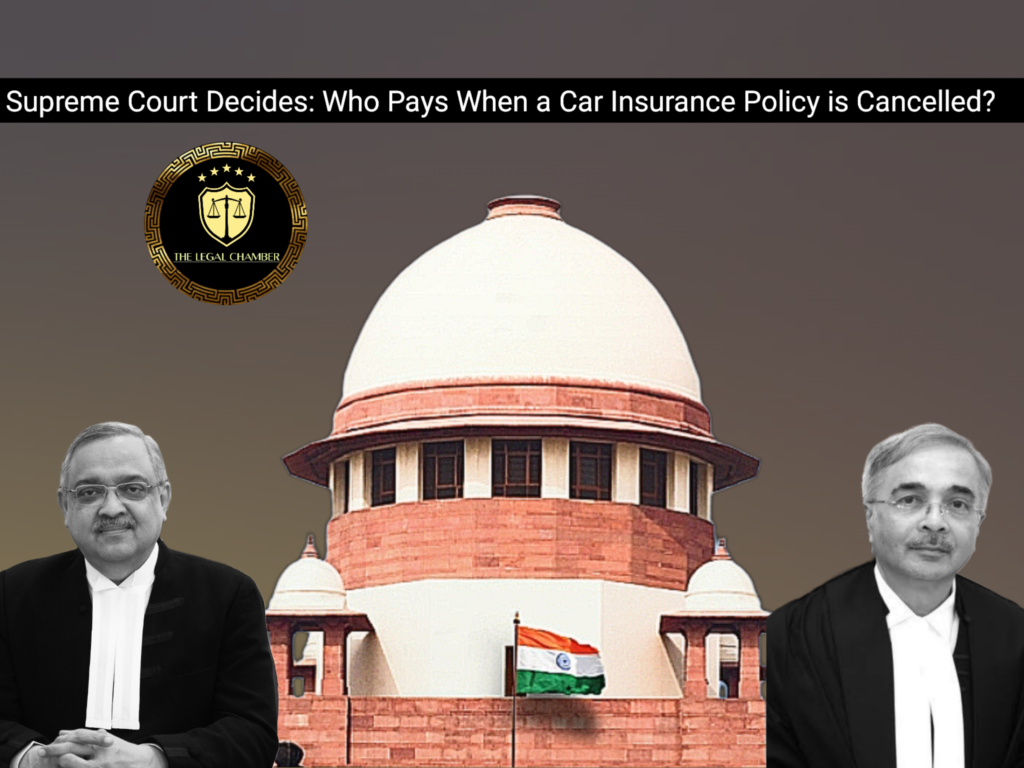
This Supreme Court case reaffirms the principle that an insurance policy stands rescinded upon dishonour of the premium cheque and intimation to the concerned parties, absolving the insurer from statutory liability. However, applying the “pay and recover” doctrine, the insurer was directed to pay the awarded compensation to the third-party claimants and was permitted to recover the same from the vehicle owner.
Facts Of The Case:
On August 22, 2005, Dheeraj Singh died when his motorcycle was hit from behind by a speeding truck (HR 46 A 1020). The deceased, a 36-year-old computer engineer, was found to be earning ₹3,364 per month. His dependents filed a claim before the Motor Accident Claims Tribunal. The appellant, National Insurance Company Ltd., disowned liability by contending that the insurance policy for the offending truck had been validly cancelled before the accident. The basis for cancellation was that the cheque provided by the vehicle owner for the premium had been dishonoured due to insufficient funds. The insurer asserted it had informed the owner and the Regional Transport Office (RTO) of this cancellation via a communication dated May 4, 2005, creating a gap of over three months before the accident. The Tribunal and the High Court both acknowledged this cancellation but nonetheless directed the insurance company to pay the awarded compensation of ₹8,23,000 to the claimants first and then recover the same amount from the vehicle owner. The insurer appealed this decision to the Supreme Court.
Procedural History:
The claim was initially filed before the Motor Accident Claims Tribunal, Delhi, which passed an award on April 20, 2007. While the Tribunal found the insurance policy was validly cancelled due to dishonour of the premium cheque, it directed the appellant Insurance Company to pay the compensation to the claimants and then recover it from the vehicle owner. The insurer’s appeal against this order was dismissed by the Delhi High Court on May 2, 2016, which confirmed the Tribunal’s judgment. The matter was then appealed to the Supreme Court (Civil Appeal No. 9854 of 2016), which disposed of the case with specific modifications to the recovery process.
READ ALSO :How Unexplained Injuries and a Family Dispute Led to an Acquittal by the Supreme Court
Court Observation:
Final Decision & Judgement:
The Supreme Court disposed of the appeal by modifying the recovery directions. It ruled that the 50% compensation amount already deposited by the insurer and withdrawn by the claimants shall not be recovered from them. However, the insurance company was granted liberty to recover that entire 50% sum from the owner of the offending vehicle. For the remaining unpaid 50% of the awarded compensation, the claimants were granted the right to recover it directly from the vehicle owner in accordance with the law.
Case Details:
Download The Judgement Here